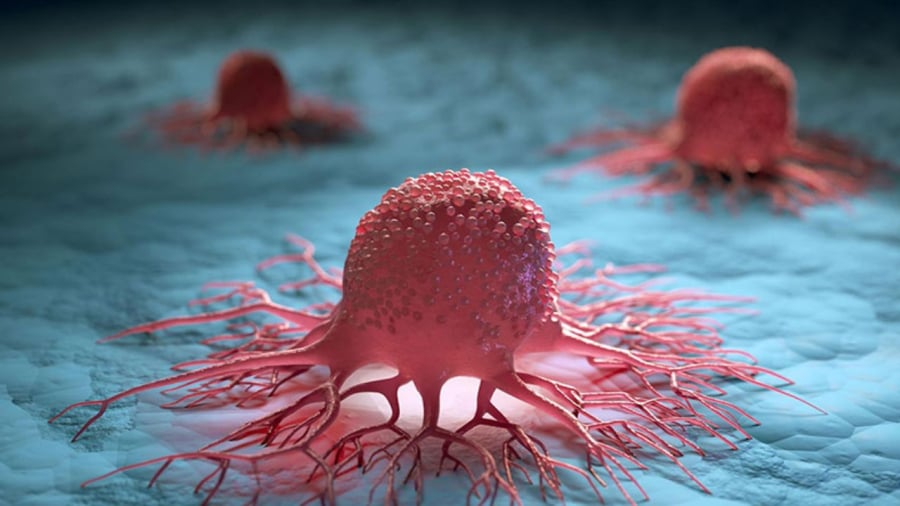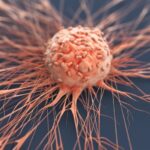Cancer is a growing concern among medical professionals, and the risk of hereditary cancer has become a pressing question for many. According to experts, some types of cancer can be hereditary, stemming from genetic mutations that directly impact cell division control and DNA repair in the body. When this mechanism becomes disordered, cells can grow out of control, leading to tumor formation and the development of cancer.
Many types of cancer are linked to genetic factors
At a conference on hereditary cancer held in Hanoi, Dr. Pham Cam Phuong, Director of the Center for Nuclear Medicine and Cancer Treatment (Bach Mai Hospital), stated that numerous studies have established links between genetic factors and common types of cancer such as breast, ovarian, colorectal, pancreatic, and prostate cancer.

Mutations in the BRCA1 and BRCA2 genes are among the most concerning genetic factors. These mutations can be passed down to subsequent generations, and those who carry them tend to develop cancer at an earlier age. For instance, breast cancer typically occurs after the age of 60 in the general population, but it can manifest as early as 30-40 years old in individuals with BRCA1/2 mutations.
Other types of cancer with a hereditary component include colorectal, thyroid, and even lung cancer, which was previously associated mainly with environmental factors such as tobacco smoke, fine dust, and asbestos. International studies indicate that individuals with a family history of cancer, particularly lung cancer, are at a higher risk of developing the disease compared to those without such a history. In Vietnam, genetic counseling services have been established in several major hospitals to help individuals identify their risk early on, make necessary lifestyle changes, and undergo proactive screening measures.
Statistics suggest that hereditary cancer accounts for approximately 5-15% of all cancer cases.
Genetic testing for cancer screening
One of the novel approaches to cancer control is genetic testing to detect hereditary mutations. Early identification of genetic abnormalities can help predict cancer risk, enabling individuals to proactively modify their lifestyles and develop personalized health monitoring plans.
However, it is important to note that there are currently no official guidelines for diagnosing cancer solely through genetic testing. Therefore, this method primarily serves as a risk assessment tool rather than a replacement for other screening and clinical diagnostic tests.
Lifestyle changes to reduce cancer risk
While cancer can have a genetic component, lifestyle and late detection are significant factors in a patient’s ability to combat the disease. Adopting a healthier lifestyle can help mitigate the risk of developing cancer. Remember, even if you carry a hereditary mutation, it does not guarantee that you will develop cancer. Here are some recommendations for a healthier lifestyle:
1. Early genetic testing and genetic counseling
Genetic testing can reveal whether an individual carries hereditary mutations associated with cancer, allowing for personalized monitoring and care plans. Those with a family history of cancer, especially breast, ovarian, or colorectal cancer, should consider genetic counseling and testing as early as possible.
2. Regular screening tailored to individual risk
Individuals with identified genetic mutations should undergo more rigorous screening than the general population. For example, women with BRCA1/2 mutations should start breast cancer screening at 25 years old instead of waiting until they are over 40, as recommended for low-risk individuals. Screening methods may include MRI scans, colonoscopies, abdominal ultrasounds, and cancer marker tests.
3. Adopt a healthier lifestyle
- Maintain a healthy weight and avoid obesity.
- Follow a balanced diet rich in green vegetables and fruits, while limiting processed foods, red meat, and grilled or fried foods.
- Engage in regular physical activity, aiming for at least 150 minutes per week of suitable exercises.
- Refrain from alcohol, tobacco, and other stimulants.
- Manage stress effectively, ensure adequate sleep, and maintain a positive mindset.
The Week Ahead: 3 Zodiac Signs Blessed With Abundance, Fortune and Opportunities
The week of June 9-15 brings positive transformations for the following three zodiac signs. It’s a period of significant shifts in their financial, professional, and emotional realms, marking a pivotal juncture in their journey through June. Don’t miss out on this astrological opportunity – read on to discover how your sign can harness this cosmic energy.





































